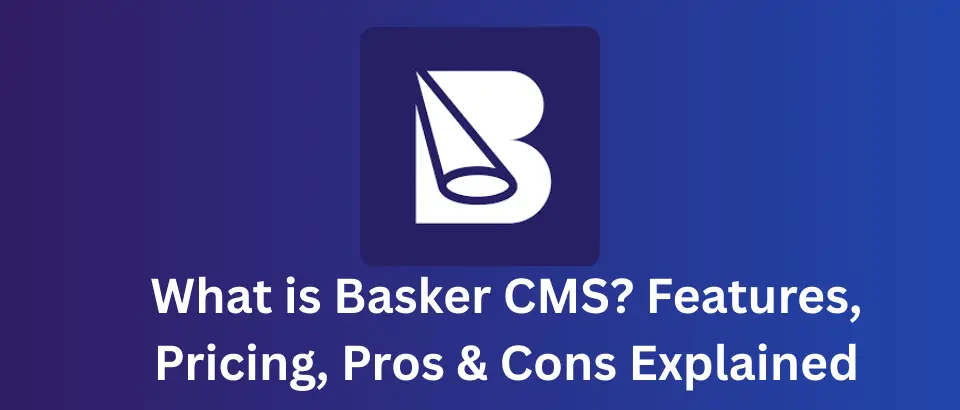
What is Basker CMS? Features, Pricing, Pros & Cons Explained
If you have ever tried building a website for concerts, festivals, or live events, you probably know how tricky it can get. Standard website builders like WordPress, Wix, or Webflow are great for general use, but when it comes to ticketing, venues, and event data, things quickly get messy. You end up stacking plugins, chasing integrations, and hoping everything works when traffic spikes on ticket release day.
That’s exactly the problem this CMS is trying to solve. It’s a platform designed specifically for the events and live experiences industry. Instead of treating events as an afterthought, it builds them into the core of the system. The result is a CMS that promises faster setup, easier integrations, and better scalability for event-driven websites.
In this guide, we’ll take a closer look at what Basker CMS is, the features it offers, the benefits and drawbacks, and how it stacks up against alternatives.
What Exactly is Basker CMS?
At its core, It is both a content management system (CMS) and a website builder. But unlike generic platforms, it’s made for events, venues, and live performances. Moreover, play Vegas Sweeps games.
That means if you run a music festival, manage a theater, or promote live shows, It is designed with you in mind. It lets you:
In short: it’s not trying to be everything for everyone. It’s focused on making event websites easier to launch and maintain.
Key Features That Stand Out
Built-in Ticketing Support
Instead of relying on third-party plugins, It integrates with ticketing systems directly. This means your site automatically updates booking links and event data, saving you time and preventing broken links.
Event-First Data Models
Unlike traditional CMS platforms, where you have to create “workarounds” for events, It already understands concepts like artists, venues, sponsors, and series. This makes managing complex events more intuitive.
Visual Block Editor
Non-developers will appreciate Basker’s drag-and-drop block editor. You can design pages, preview them live, and adjust layouts for mobile or desktop without coding.
APIs for Custom Work
For more advanced teams, it provides GraphQL and REST APIs. These make it easy to connect with marketing tools, analytics, or even your own custom apps.
Fully Managed Infrastructure
With Basker, you don’t worry about servers, scaling, or updates. Everything runs on their infrastructure, which is designed to handle large surges in traffic, especially useful during ticket releases.
Why People Like Basker
Things to Keep in Mind
No platform is perfect, and it has a few things worth considering:
How Basker Compares to Alternatives
It sits somewhere in between, combining the convenience of a website builder with the specialized tools event teams need.
Conclusion
So, is this CMS worth it? If your main business revolves around events, venues, or live experiences, it can save you a lot of headaches compared to general-purpose CMS platforms. Its ticketing integrations, event-ready data models, and managed infrastructure make it appealing for teams who don’t want to juggle plugins and servers.
On the flip side, it’s not the cheapest option, and you’re committing to their ecosystem once you start. For many event organizers, though, the trade-off is worth it, fewer technical problems, less setup time, and a website that’s ready to handle big moments when ticket sales go live.
In other words, if your focus is building event websites that just work, this CMS deserves a spot on your shortlist.



